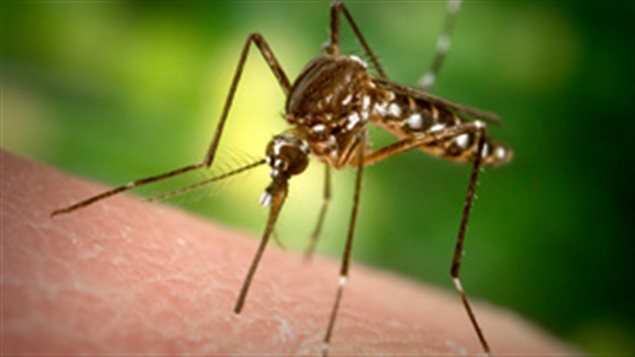This week, April 25 to be exact, was “World Malaria Day” . The theme of this year’s world malaria day was “End Malaria”
It is a major and deadly scourge around the world. The World Health Organization (WHO) estimates that in 2015 there were some 214 million cases of malaria worldwide, and over 430,000 deaths.
Stephanie Yanow (PhD) is an expert in parasitology and is an associate professor at the School of Public Health at the University of Alberta. I reached her in Copenhagen where she was giving a seminar at the university.
Listen
Professor Yanow has been studying malaria for the past 11 years, and is the lead author on a recent paper on malaria and pregnancy.
Published in the science journal ” Trends in Parasitology”, it is entitled, “Impact of Malaria in Pregnancy as Latin America Approaches Elimination”
She had originally began studying issues around cancer, but switched to research into malaria after seeing its physical, emotional and even economic effects in Africa.
Her recent research involves studying malarial issues in conjunction with pregnancy, an area she says has been little studied previously in Latin America. She notes that even if malaria were eliminated, there still might be cases where a pregnant woman could show up later with a full-blown case of malaria due to the parasite lying dormant in the liver.
Professor Yanow says that malaria in pregnancy is associated with problems like low birth-weight, congenital malaria and maternal illness and that about four million pregnancies are at risk every year.
Because of dormant infections, detection can be difficult, as well as treatment as some medicines are not safe to use during pregnancy. This means the illness can return and the cycle start all over.
Professor Yanow and colleagues are currently doing a longer term study in Colombia where they are following women through the pregnancy and collecting blood samples each month. They will determine if and when an infection occurs, the body’s immune response, and after birth, clinical outcomes for the mother and the baby. This is to better understand how malaria affects pregnant women and babies over time.
As for the theme of “ending malaria” she is hopeful this can and will be achieved, but says for now, simple measures like insecticide treated bed netting is a cost effective way of greatly reducing risk of getting infected in the first place.
additional information







For reasons beyond our control, and for an undetermined period of time, our comment section is now closed. However, our social networks remain open to your contributions.